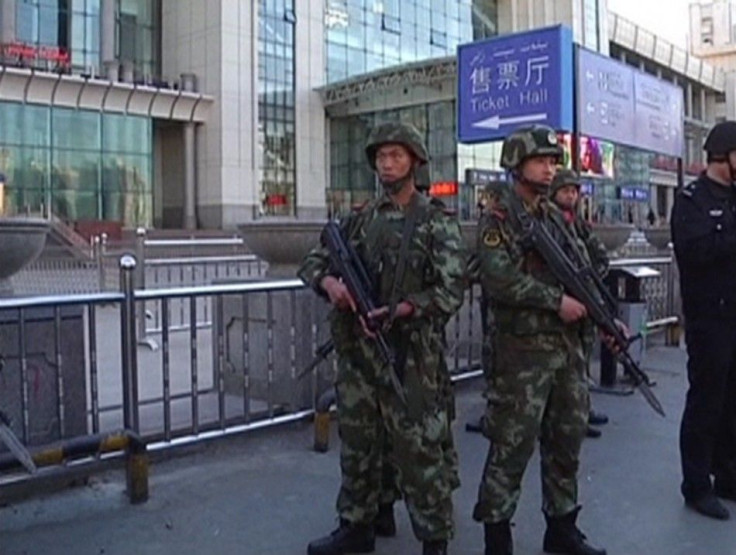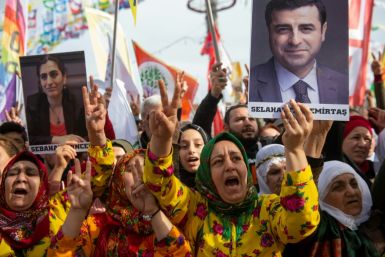China Bombing: 3 Dead, 79 Injured in Railway Station Blast (PHOTOS)

Just hours after President Xi Jinping wrapped up a four-day visit in the far-west minority region of Xinjiang, a set of explosives planted at Urumqi South Railway Station blasted off on Wednesday killing three people and injuring 79 others.
At least two blasts went off at the railway station on Wednesday night, according to the official Xinhua News Agency. As pandemonium ensued, witnesses said a large group of knife-wielding attackers went after passengers.
"At the moment, it is acknowledged to be a terrorist attack. What is yet to be found out is who did this and for what purpose under whose instigation," Xinhua said in a report early Thursday.
Chinese President Xi Jinping has demanded "decisive actions" against terrorism following the attack.
But on Thursday, the station appeared bustling and operating normally despite the presence of dozens of black police vans parked around the station with camouflaged police armed with assault rifles patrolling the entrance.
The incident has been blamed on the predominantly Muslim Uighur ethnic group which they said has been conducting series of increasingly complex attacks in recent months.
It is not known if the attackers had been killed or captured.
"It is very clear that they are challenging the Chinese government," Pan Zhiping, a retired expert on Central Asia at Xinjiang's Academy of Social Science, told Reuters, noting how the organisers of the attack timed the violence with Mr Xi's visit.
"There was a time last year when they were targeting the public security bureau, the police stations and the troops. Now it's indiscriminate - terrorist activities are conducted in places where people gather the most," he added.
Mr Xi vowed to go after those responsible.
"The battle to combat violence and terrorism will not allow even a moment of slackness, and decisive actions must be taken to resolutely suppress the terrorists' rampant momentum," Mr Xi said in comments published on the front page of official newspapers Thursday and carried by state television.
Rian Thum, a professor at Loyola University in New Orleans, who specializes in Uighur history and issues, is particularly alarmed over the extremists' target of civilians.
"Most violent resistance had previously been directed at police officers, soldiers, and officials, often using knives and farm tools. The attack at the Urumchi train station, if it was carried out by Uyghurs, suggests an emerging pattern of more civilian targets and violence on a larger scale," he said.






